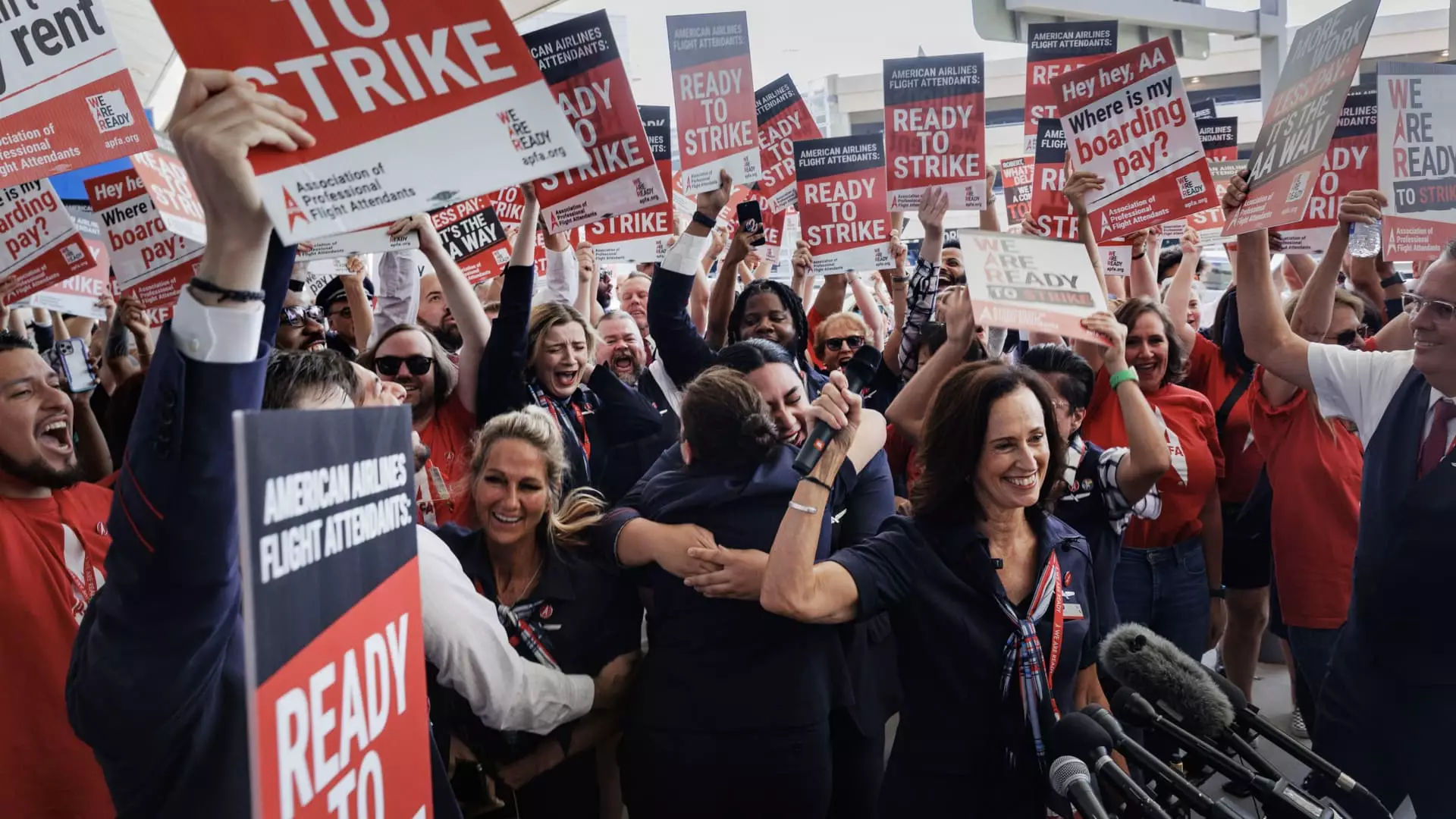In a significant turnaround for the airline industry, flight attendants at American Airlines have successfully ratified a new five-year labor agreement, effectively resolving one of the most fractious contract negotiations in recent memory. With an overwhelming 87% of voting members in favor, this contract guarantees immediate wage increases of up to 20.5%, effective from the beginning of October. The approval of this agreement not only brings financial relief to the airline’s approximately 28,000 cabin crew members but also reaffirms the power of union negotiations in the wake of an industry marked by transitions and turbulence.
“Today marks a pivotal achievement for our Flight Attendants,” remarked Julie Hedrick, president of the Association of Professional Flight Attendants. This agreement not only promises immediate financial benefits but also retroactive pay as compensation for the protracted duration of the negotiations. The strength of this agreement means more than just numbers; it reflects the acknowledgment of the importance of cabin crew roles in enhancing the flying experience and maintaining operational integrity. Moreover, it alleviates concerns amongst American Airlines’ management, which faced serious strike threats should discussions fail to produce a resolution.
The negotiations garnered attention at multiple levels of government, with notable figures like Transportation Secretary Pete Buttigieg and Labor Secretary Julie Su participating in mediation efforts. Their involvement underscores the recognition of the essential nature of labor relations in maintaining the equilibrium of the aviation sector. With more than 160 lawmakers advocating for equitable resolutions among airlines, it becomes evident that labor movements are crucial to the recovery and progression of the industry, especially following the financial strains inflicted by the COVID-19 pandemic.
While American Airlines celebrates this agreement, other carriers continue to navigate their own turbulent negotiations. United Airlines remains in talks with its flight attendants, while Alaska Airlines recently encountered setbacks after a proposed agreement was rejected by cabin crew members. This pattern echoes broader labor trends where various sectors, including the automotive and entertainment industries, have successfully advocated for wage increases, sometimes resorting to strikes to make their voices heard. The situation exemplifies a renewed climate of assertiveness among workers advocating for fair compensation and better working conditions post-pandemic.
As discussions surrounding labor agreements continue across airlines, American Airlines’ successful negotiation sets a powerful precedent. However, the impending decision by Boeing workers on their proposed 25% raise suggests that challenges persist in the broader aerospace industry. The outcome of these negotiations could further influence trends and set benchmarks for future labor agreements. Ultimately, the successful ratification by American Airlines flight attendants not only serves as a win for airline staff but could also inspire other unions within the sector to pursue equitable treatment as they negotiate for their rights in this evolving economic landscape.

